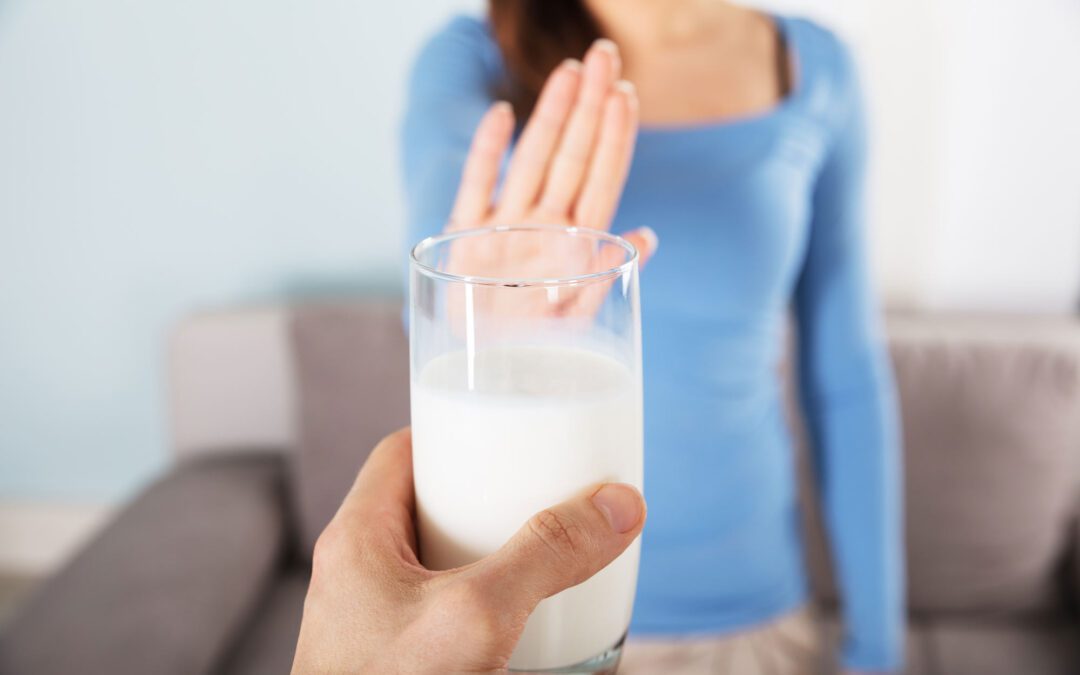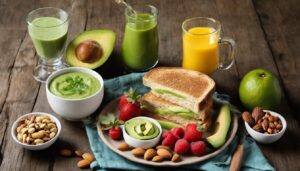
18 Apr Dairy and Dental Implants: A Look At The Best Foods for Post-Implant Care
Consuming dairy post dental implant surgery can dampen your body’s healing process. This happens as dairy items might introduce bacteria into the surgical site, sparking inflammation. Interestingly, the very keystone of successful recovery is minimising inflammation while your body works to integrate the new implant with your jaw bone. So, along those lines, skipping that cheddar or milk can just give your implants a better shot at harmonising with your jaw. Now, let’s dive deeper into the healing process.
Healing After Dental Implant Surgery
Right after your dental implant surgery, an extraordinary process begins, where the implants gradually merge with your jawbone. This process, known as osseointegration, takes time, usually several months, and is crucial in determining how well your new teeth implants will function.
The early days following your implant surgery are vital for this integration process. You must be gentle with yourself during this time, especially with your diet and habits. The bone needs to heal around the implant without any disturbances, so it’s important to avoid hard or chewy foods and to refrain from smoking or using a straw to ensure that there is no unnecessary pressure on the surgical site. Post-operative care instructions from your dental implant dentist are essential for optimal healing and successful fusion of the implant with the bone. It’s important to follow these instructions diligently to prevent any complications that could arise due to improper care. Proper oral hygiene during this time is also crucial to prevent infection at the surgical site and maintain overall oral health.
In some cases, your dental implant dentist may recommend dietary modifications or vitamin/mineral supplements. Ensuring you’re receiving adequate nutrition, particularly vitamins C and D, calcium, and protein, can significantly support the healing process by providing essential building blocks for new bone growth and tissue repair.
During the initial healing period, it’s entirely normal to experience some swelling, discomfort, or minor bleeding around the implant site. However, if you notice any unusual symptoms such as severe pain or excessive bleeding, it’s important to contact your dental professional promptly. They can provide guidance or adjust your post-operative care plan as necessary.
Patient compliance during this phase heavily influences the post-surgery outcomes. It’s advisable not to skip any follow-up appointments scheduled by your dental practitioner during these months as they play a pivotal role in monitoring your progress and ensuring a smoother recovery journey.
Ensuring proper rest and maintenance of general well-being during this time will aid in promoting overall recovery and enhancing the body’s natural healing processes. This comprehensive self care approach seeks to optimise healing outcomes and contribute to a favourable prognosis for long-term dental implant success.
Dairy’s Impact on Oral Inflammation
When we mention dairy, we’re generally talking about milk, cheese, yoghourt, and butter. While these common favourites might seem harmless, consuming dairy shortly after a dental implant procedure can actually impact your oral health.
Consuming dairy products shortly after undergoing dental implant surgery introduces a risk of bacterial contamination in the surgical site. This is due to the potential presence of bacteria in dairy products, particularly in raw or untreated forms of dairy.
For instance, unpasteurised milk products can carry a higher risk of containing harmful bacteria such as Salmonella, E. coli, and Listeria. These could lead to infection if they enter the post-surgical area.
In addition to the threat of bacterial colonisation, the inflammatory response triggered by consuming dairy products can hinder the body’s natural healing process. Inflammation at the site of an implant can delay healing and increase the risk of complications. Therefore, patients undergoing dental implant procedures need to be aware that reducing the risk of oral inflammation is crucial for successful post-implant care.
With a better understanding of the impact dairy can have on oral inflammation post-dental implant surgery, it’s evident that patients need to be mindful about their diet and its potential influence on the healing process.
Reasons to Avoid Dairy After Dental Implant
After receiving dental implants, it’s crucial to carefully consider your diet to support proper healing and recovery. Omitting certain foods, particularly dairy products, is imperative as they could potentially hinder the healing process. Several important reasons support avoiding dairy after dental implant surgery to contribute to better outcomes.
Bacterial Contamination
Dairy products can harbour harmful bacteria that pose a risk of introducing infections to the surgical site, significantly compromising the healing process. Minimising exposure to potential sources of infection post-surgery is particularly vital. Eliminating dairy from your diet during the initial stages of recovery helps create an environment conducive to healing and decreases the risk of bacterial contamination around the implant site.
Inflammatory Response
Some dairy products can trigger an inflammatory response in the body. Inflammation generally impedes the body’s natural ability to heal and repair damages, potentially interfering with the seamless integration of the dental implant into the jawbone.
Displacement of Blood Clots
Moreover, dairy’s consistency and chewing act can dislodge blood clots forming over the surgical area, which are critical in protecting the wound and stabilising gum tissue for healing. Dairy products have properties that may interfere with this clotting process, potentially leading to complications and longer recovery time.
By being mindful of these factors and adjusting your diet accordingly, you actively contribute towards creating a conducive environment for optimal healing. Consulting with your dental professional regarding dietary recommendations after receiving dental implants for personalised advice is essential. This approach can help ensure effective support for your body’s recovery process and promote successful long-term results.
In understanding how dietary choices influence post-dental implant care, it’s also important to explore alternative options that foster efficient recovery and healing—without sacrificing essential nourishment.
Dairy Alternatives for Better Healing
You may already know that dairy is packed with calcium, but there are numerous other foods providing the essential nutrients required for recovery after dental implant surgery. In fact, opting for non-dairy alternatives can not only fill the void left by dairy but also include additional healing properties.
Let’s delve into the kind of non-dairy foods bountiful in vital nutrients essential for your post-operative healing.
Calcium and Vitamin D-Rich Foods
Getting enough calcium and vitamin D is crucial because they work hand in hand to support bone health. While dairy might not be an option, leafy greens such as spinach and kale are great non-dairy sources of calcium. Additionally, fortified non-dairy milk options like almond, soy, or oat milk provide your essential daily dose of this powerful pair.
Lean Proteins
After dental implant surgery, extra protein is needed to support tissue repair and overall healing. If you’re going dairy-free, consider adding an assortment of lean proteins to your diet like fish, poultry, and legumes. For instance, salmon and chicken are particularly rich sources of protein beneficial for your recovery.
Probiotic-Rich Foods
Your gut health plays a significant role in your oral health. Incorporating probiotics into your diet can help maintain a healthy oral microbiome. Cultured non-dairy yoghourt stands as an excellent source of probiotics without any dairy content—making it a valuable contributor to your recovery process.
Each bite plays a part in nourishing your body and helping it heal truly. When planning out a dairy-free diet post-surgery, remember that embracing these nutrient-rich foods lays the groundwork for a smooth road to recovery without sacrificing taste and satisfaction.
As we’ve explored the significance of various foods in promoting post-implant healing, let’s now turn our attention to the recommended dietary choices facilitating optimal recovery.
Recommended Foods for Post-Implant Care
After undergoing dental implant surgery, it’s essential to be mindful of your food choices to aid the healing process. Let’s explore some dietary options that can help optimise your recovery.
Soft Foods
Many dentists recommend soft foods like steamed vegetables, smoothies, and mashed potatoes as they can be particularly beneficial during the initial phase of recovery. These foods minimise chewing involvement, reducing stress on the surgical area and facilitating a more comfortable healing process. Opting for gentle dietary choices assists in reducing inflammation and provides essential nutrients without causing discomfort.
By turning to steamed vegetables, you ensure that you’re receiving important vitamins and minerals from your diet without overwhelming your sensitive mouth area. Similarly, smoothies provide a great way to obtain a variety of nutrients such as protein, fibre, and antioxidants in an easily digestible form. Incorporating soft foods is not just about making eating easier; it’s essential for optimising your body’s ability to heal after the trauma of surgery.
Hydration
In addition to being cautious about what you’re eating post-surgery, prioritising hydration is equally important. Maintaining proper hydration by drinking water is crucial for the healing process. Herbal teas are also valuable due to their lack of caffeine or tannins—both of which can potentially hinder healing. Adequate hydration supports the body’s recovery by flushing out toxins and promoting optimal blood flow to the surgical site.
With increased attention to hydration through water and herbal teas, patients not only support their recovery process but may also find it beneficial in reducing any potential post-operative complications. Not only do these beverages maintain fluid balance vital for cellular functioning, but they also aid in preventing infections and promoting overall wellness during recovery.
By incorporating soft, nutrient-rich foods and maintaining proper hydration levels post-dental implant surgery, patients can significantly contribute to an easier recovery process and enhance the overall outcomes of their dental implant procedure.
Understanding the crucial role that diet plays in post-implant care sets the stage for a deeper exploration into long-term dietary considerations for implant health.
Long-term Dietary Considerations for Implant Health
Once the initial healing stage is over and your dental implants have successfully integrated with your jawbone, maintaining a balanced diet becomes crucial for their long-term health. Think of it as fuelling your body and boosting your oral well-being simultaneously. A balanced diet, rich in various nutrients, is critical for supporting implant health.

Balanced Nutrition
A diverse range of foods provides the essential nutrients crucial for maintaining robust, healthy gums and bone around your implants. Fruits and vegetables are packed with vitamins and minerals like vitamin C, which assists with healing and boosts the immune system. Meanwhile, lean proteins such as fish and poultry serve as excellent sources of protein, promoting tissue healing and repair. Additionally, whole grains rich in fibre contribute to overall health.
Consider incorporating foods like oranges, strawberries, kale, spinach, chicken, turkey, quinoa, whole grain bread, or pasta into your meals for a diet that promotes dental implant health.
Hygiene Maintenance
Outstanding oral hygiene practises go beyond the healing phase after dental implants. Regular brushing, flossing, and attending crucial dental check-ups remain vital. The same principles that apply to natural teeth—keeping the area clean—help prevent infection, gum disease, and other complications that can impact the longevity of your implants.
It’s important not to neglect regular visits to your dentist—schedule cleanings and check-ups every six months not only to maintain your implants but also to allow your dentist to monitor your oral health.
Patient Education
Educating patients about post-implant nutrition plays a significant role in encouraging healthier dietary choices as part of their overall oral health care routine. Understanding how nutrition impacts dental implant health fosters proactive dietary habits that complement post-implant recovery and care.
Your dentist or dental team should provide you with valuable information on how specific nutrients can benefit implant health. They might also recommend dietary modifications or nutritional supplements based on individual needs.
By prioritising a well-rounded diet, embracing good oral hygiene practises, and being knowledgeable about the role of nutrition in maintaining dental implant health, you’re taking proactive steps toward a healthier smile that stands the test of time.
If you are considering a dental implant procedure and would like to speak to a dental implant expert, you can book a free implant consultation at our Kirrawee dental clinic, just call our reception on (02) 8544 8607 or visit this page for more information!


